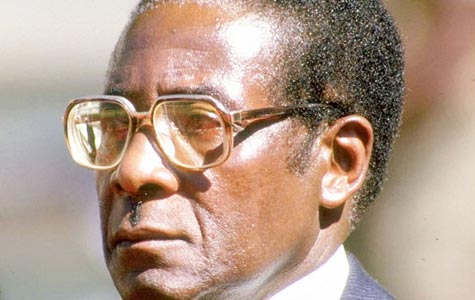
THE silly season is surely upon us.
REPORT BY NQABA MATSHAZI
With elections drawing close, there has been an increase in the number of political parties being formed, each claiming to be an alternative to Zanu PF and promising to end President Robert Mugabe’s 32-year-old reign.
But, as with years gone by, the new parties fold sooner than they are formed, without making as much as a dent on the political scene and the question is, will the next election prove any different.
The latest party on the scene is the Progressive and Innovative Movement of Zimbabwe (PIMZ), whose main objective is to make sure that every Zimbabwean has eggs, bacon and milk at every breakfast.
“Food on the table daily for all Zimbabweans, at least an egg, milk and bacon on every breakfast,” reads the party’s manifesto.
“Food on the table will be guaranteed by the vibrant economy to be established with PIMZ in power.” Along with a vibrant economy, the party promises to change the names of provinces, saying the present ones engendered tribalism.
“PIMS (sic) believes provinces should not be named on ethnic lines like Mashonaland, Matabeleland, but on geometric space lines e.g. ZimNorth, ZimCentral, ZimSouth, ZimEast, ZimWest,” the manifesto continues.
- ED heads for Marange
- ‘Zimbos dreading 2023 elections’
- Your Excellency, the buck stops with you
- We’ll unleash our dogs: Zanu PF
Keep Reading
While other parties are tearing each other apart on devolution, PIMZ has come up with a novel idea, where the capital city will rotate between Harare, Bulawayo and Mutare, “for balanced national development”.
Not to be outdone, Anslem Karimupfumbi says his Rusununguko United People’s Party, which he claims was formed in 2010, will contest the next election, where it will win 176 of the 210 seats.
Karimupfumbi said his party was the future and neither Zanu PF nor Mugabe should contest the next election, as they did not have Zimbabwe’s interest at heart.
“I therefore, request a stoppage in publishing Zanu PF [stories],” he said. “Any publication of Rusununguko [stories] is an added advantage to you [newspapers].”
Another party hoping to upset the applecart is the Zimbabwe Development Party, fronted by the memorable Kissnot Mukwazhi. Mukwazhi has been calling several, but poorly attended, press conferences, as he seeks to convince Zimbabweans he is the best candidate.
As if to prove that he has hit the ground running, Mukwazhi recently wrote a letter to South African President Jacob Zuma, advising him on his mediation process in Zimbabwe.
The only problem is the letter was riddled with grammatical errors and might not be taken seriously.
“We don’t want in strongest terms bombs to enhance power transfer,” the party wrote.
“This is not a call for interference to our home affair, but a call to help your needy small brother Zimbabwe to be economically, political and socially stabilise (sic).”
Analysts question the credibility of candidates Mukwazhi asked Zuma to help Zimbabwe become “a member of the gold Brick just like yours”, probably referring to Brics, an acronym for Brazil, Russia, India, China and South Africa.
In the past, there have been parties like the Zimbabwe People’s Democratic Party, which was led by the late Isabel Madangure, who infamously remarked that if she were elected, she would disband the army and the police force, as peace would be prevailing.
Then there is Egypt Dzinemunhenzva, who leads the African National Party. He has been involved in politics since 1990, but is yet to reap any form of reward for his efforts.
“The credibility of some of these candidates is questionable,” political commentator, Rejoice Ngwenya said.
“I have worked with people like Egypt Dzinemunhenzva in Copac and people like that tarnish the image of democracy.”
He said for new parties to be registered, there needed to be a threshold, as the parties “need to prove that they have a percentage of voters on the voters roll”.
Ngwenya said the mushrooming of parties created an illusion that there was democracy.
Ernest Mudzengi, a political analyst, echoed the same sentiment, saying the new parties caused confusion.
“I think most of the people who lead these parties just want to cause confusion,” he said.
At the last count, the Zimbabwe Election Commission said there were 23 registered parties.











